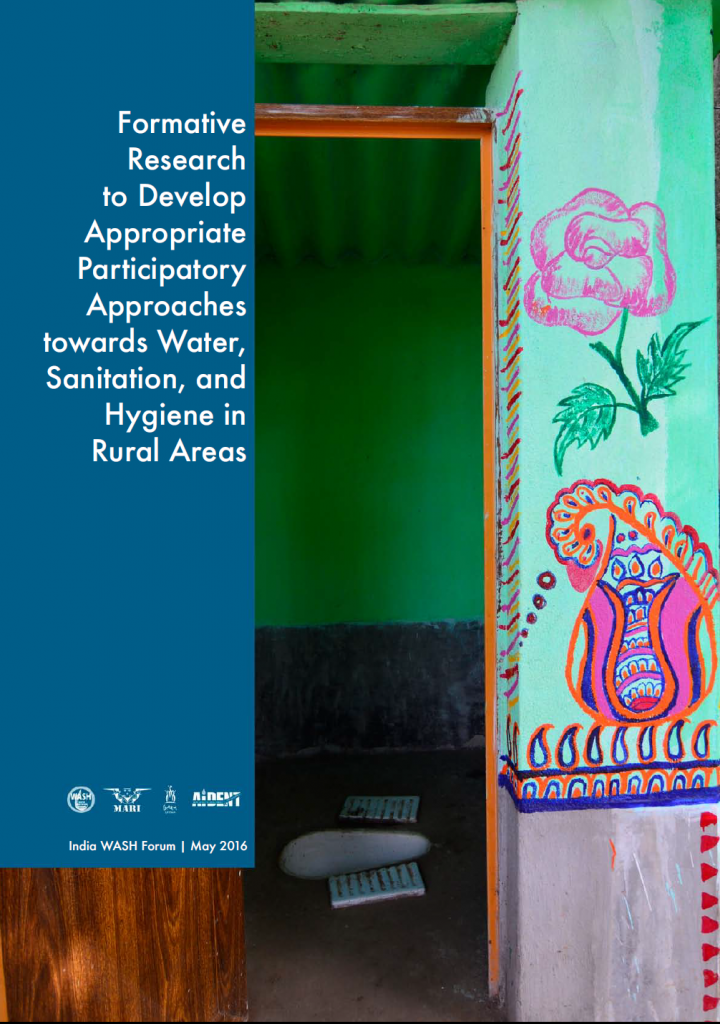Formative Research to Develop Appropriate Participatory Approaches towards Water, Sanitation, and Hygiene in Rural Areas
Kapur, D.; Ramisetty, M. & Barot, N. (2016)

Published in: 2016
Pages: 62
Publisher:
India WASH Forum
Author:
Kapur, D.; Ramisetty, M. & Barot, N.
Uploaded by:
SuSanA Admin
Partner profile:
common upload
2139 Views
51 Downloads
India faces the twin challenges of having the most number of people in the world defecating in the open and also for the burgeoning crisis of untreated fecal waste that is contaminating our surface and ground water creating an imminent health crisis. The latest Swachhta Stats Report1 shows an encouraging 45% rural sanitation coverage by mid 2015 as against the 31% coverage in 2010 Census. Both motivating people to build and to use toilets is emerging as a major national priority as outlined in the Swachh Bharat Mission initiated by the Honourable Prime Minister for achieving open defecation free India by 2nd October 2019.
Additional information
Ending open defecation and behavior change to motivate people to build and use toilets is seen a rural sanitation challenge. Treatment and safe disposal of fecal waste generated from septic tanks and the partial sewerage systems in urban areas is seen as an urban sanitation challenge.
Different sanitation promotion programming approaches have been adopted worldwide by NGOs and international agencies specially, to encourage, motivate and also coercepeople to stop defecating in the open and to build and use toilets. A compendium of different Hygiene and Sanitation Software approaches was recently compiled by WSSCC2. Most Behaviour Change Communication (BCC) in WASH till date has relied on employing typical market research approach (addressing emotional, psychological, and entertainment based stimuli) in behavior change message development. Community Led Total Sanitation (CLTS) has emerged as a popular programming tool for community level sanitation behavior change.
Most sanitation promotion approaches are only partially successful in providing short term increases in sanitation coverage and usage. BCC messages designed as marketing interventions often fail to address deeper underlying causes of resistance behind people’s reluctance to adopt improved and safe sanitation and hygiene (or even physical barriers like water availability).
Bibliographic information
Kapur, D.; Ramisetty, M. & Barot, N. (2016). Formative Research to Develop Appropriate Participatory Approaches towards Water, Sanitation, and Hygiene in Rural Areas. India WASH Forum
Filter tags
Behaviour change (WG13) Case studies in other formats East Asia & Pacific English Rural














